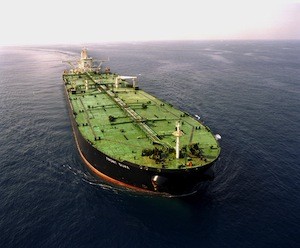
By Julian E. Barnes, The Wall Street Journal
WASHINGTON — U.S. government officials, citing new intelligence, said Iran has developed plans to disrupt international oil trade, including through attacks on oil platforms and tankers.
Officials said the information suggests that Iran could take action against facilities both inside and outside the Persian Gulf, even absent an overt military conflict.
The findings come as American officials closely watch Iran for its reaction to punishing international sanctions and to a drumbeat of Israeli threats to bomb Tehran’s nuclear sites, while talks aimed at preventing Iran from developing nuclear weapons have slowed.
Analysts say Iran, which denies it is developing nuclear weapons, may be looking for options to push back as it comes under growing pressure and finds its most critical ally, the Syrian regime, focused internally on its own struggle for survival.
The Pentagon several times has warned Tehran over its threats to close the Strait of Hormuz, a crucial oil-shipment point, and U.S. officials and analysts said Iranian officials apparently believe that mining the narrow strait would invite a U.S. attack on their forces.
But U.S. officials said some Iranians believe they could escape a direct counterattack by striking at other oil facilities, including those outside the Persian Gulf, perhaps by using its elite forces or external proxies.
“Iran is very unpredictable,” said a senior defense official. “We have been very clear what we as well as the international community find unacceptable.”
The latest findings underscore why many military officials continue to focus on Iran as potentially the most serious U.S. national-security concern in the region, even as the crisis in Syria has deepened and other conflicts, as in Libya, have raged.
Defense officials cautioned there is no evidence that Tehran has moved assets in position to disrupt tankers or attack other sites, but stressed that Iran’s intent appears clear.
The officials wouldn’t describe the intelligence or its sources, but analysts said statements in the Iranian press and by lawmakers in Tehran suggest the possibility of more-aggressive action.
Spokesmen for the Defense Department and the Central Intelligence Agency declined to comment on the existence of any intelligence related to Iranian attacks on the oil industry. Iranian officials didn’t respond to a request to comment.
The U.S. military has used the new intelligence in internal war-games exercises to simulate how the international community would respond to an attack on an oil tanker, refinery or other part of the energy-transportation system.
“It wouldn’t be surprising to anyone if the Iranian regime was weighing a list of possible responses in the Gulf,” said a U.S. official. “This doesn’t mean they would do something, as there are significant costs the Iranians would have to consider, but this is something to keep an eye on.”
The decision by officials to discuss the new intelligence privately is intended in part to deter Iran.
“They have to know this would provoke some sort of response,” said a senior defense official.
The Defense Department has taken several recent steps to bolster its presence in the region, including plans for a 20-nation antimine exercise in September and orders to beef up the presence of U.S. aircraft carriers.
Tehran has disrupted international oil supplies in the past, most notably during the Iran-Iraq war in the 1980s. In 1987, the U.S. began patrolling the Persian Gulf and Iran began mining the waters to slow warships and halt Arab oil exports.
Short of trying to close the strait, officials and analysts said Iran could restrict oil flows by attacking a new United Arab Emirates pipeline, Bahrain’s oil refinery or Saudi ports.
“The worst-case scenario is the Iranians decide to attack shipping to spook the market and do it in such a way that would not generate an overwhelming response,” said Christopher Harmer, a former planner with the U.S. Fifth Fleet and the senior naval analyst at the Institute for the Study of War.
Defense analysts said Iran has been training its Quds Force, a unit of the Revolutionary Guards, to conduct underwater terror attacks using frogmen. Tehran also could turn to Shiite militants in other countries including Iraq, Saudi Arabia, Bahrain and the U.A.E..
Some U.S. officials said they believe Iranian plans to disrupt the oil trade have intensified in the past month, as international sanctions now in place constrain their oil exports.
“Iran is in a worse situation as a result of sanctions they have lower volume and lower prices,” said Frank Verrastro, director of the Center for Security and International Studies’ energy and national security. The sanctions, he said, could bring Iran to the table, or it could push them over the edge. “And that is the delicate balance folks are concerned about.”
–Siobhan Gorman, Adam Entous and Jay Solomon contributed to this article.–
Copyright © 2012 Dow Jones & Company, Inc.
Defense analysts and officials say potential targets include:
— The ‘accidental’ release of a mine in the Persian Gulf that strikes a tanker
— Underwater attacks on tankers in port by frogmen from Quds Force
— Attacks by small boats on tankers in the Arabian Sea
— Attacks through proxies on Saudi oil facilities
— Attack on oil refinery in Bahrain
— Attack on oil pipeline, other oil facilities in the United Arab Emirates
Source: WSJ research

 Join The Club
Join The Club



![Pentagon: Iran Has Plans to Attack Oil Platforms and Tankers [WSJ REPORT]](https://gcaptain.com/wp-content/uploads/2012/07/titan_orion.jpg)







